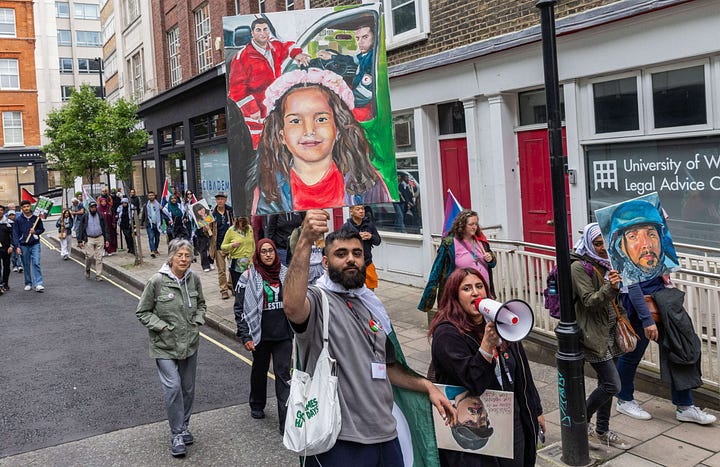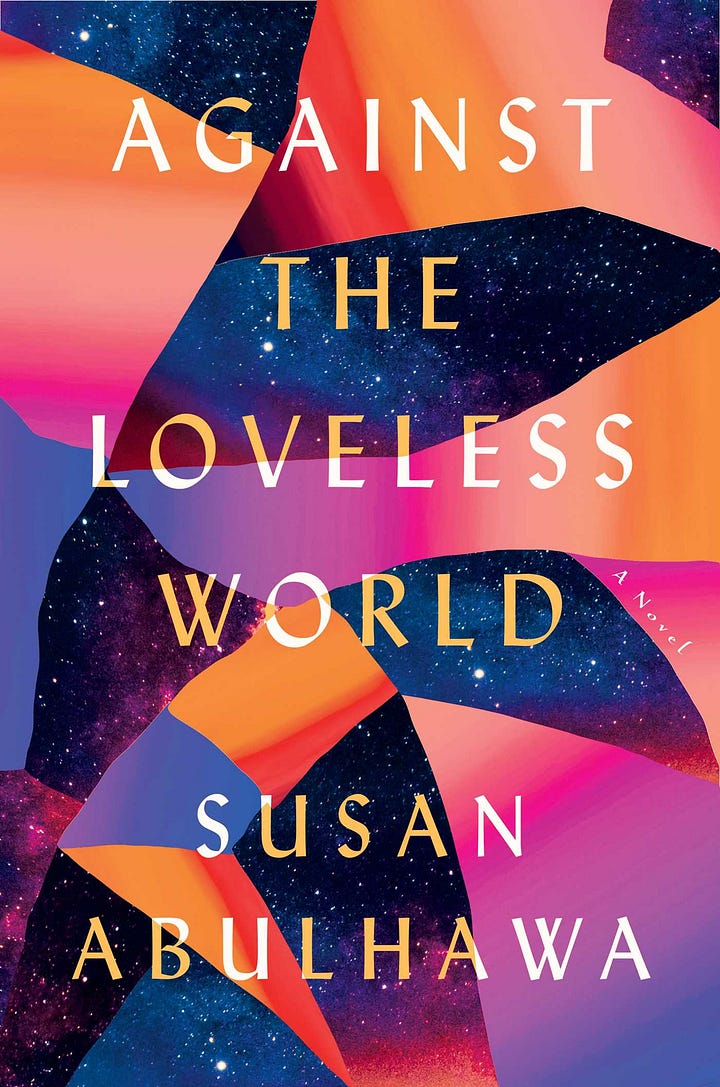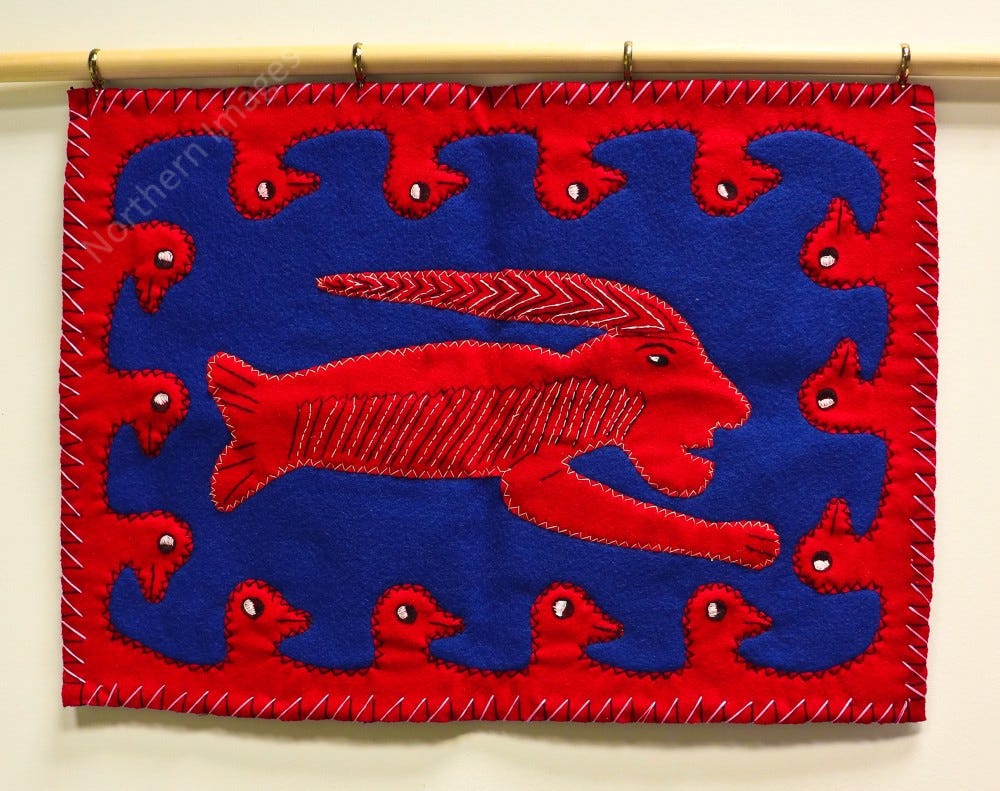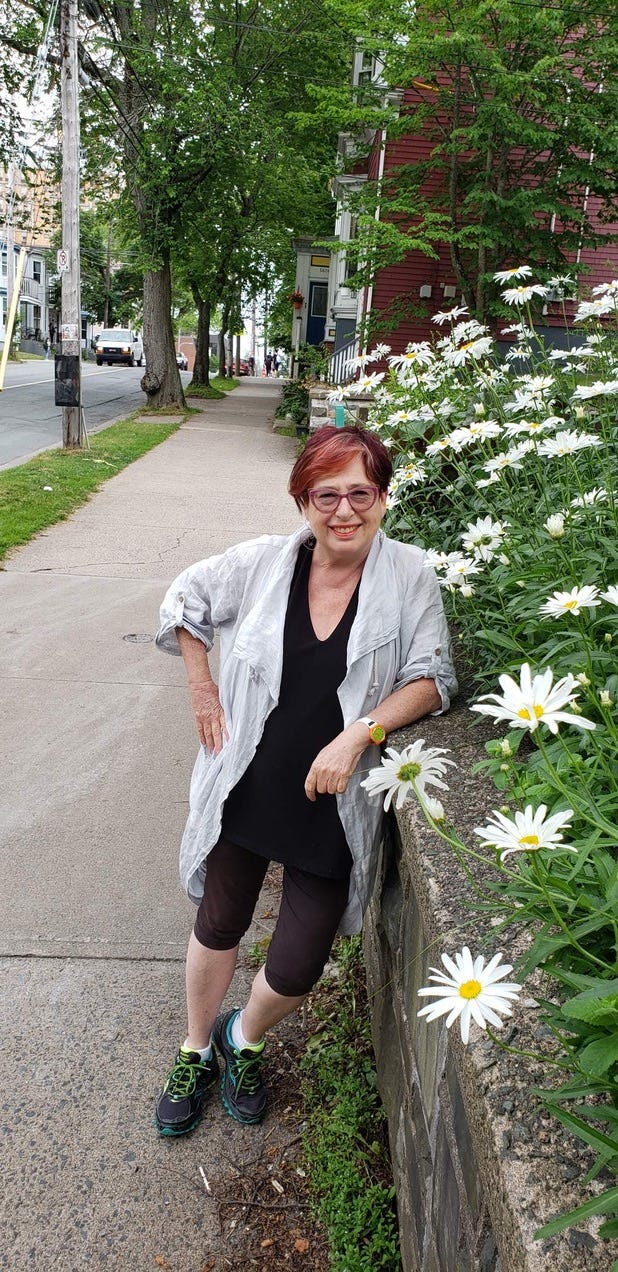What to watch…
Just saw Season 2 of Traces, a 6-part series by the BBC. It’s on Kanopy. Traces is actually a unique police procedural and rather fascinating. Two women university professors – one a forensic anthropologist, the other a forensic chemist from a University in Dundee Scotland become involved with police investigations. Kathy (the anthropologist) is looking for a missing university student who might have taken his life; Sarah is trying to find out the identity of a bomber who killed six in two explosions in Dundee’s city centre. This series is about the women’s relationship, a grad student who tries to undermine them, and the pressure the police – and the nasty science dean at the university –put them under. The writing is good, and witty. The issues around power and process at the university are also fascinating particularly when the grad student complains to the university administrators about Kathy, hinting at her lesbian lifestyle. The scenes are fast paced and believable. It’s a joy to hear the Scottish accents – and also Kathy’s accent which is supposed to be Canadian, as she is from Edmonton. Watch it. I’m watching Season 1 – I know it’s backward. Watch the trailer here.
Girl in the Picture (2022) is a rather good documentary on Netflix. A young woman, Sharon Marshall, was abducted by a federal fugitive Franklin Delano Floyd. He raised her as his daughter. When Marshall was a young girl Floyd began to sexually assault and rape her. She was forced to marry Floyd and raise their daughter. In 1990, Sharon died in a questionable hit and run accident. What happened to the daughter? And to Sharon’s original family. The doc will hold your attention to the last. It’s well done—if a bit confusing. Trailer’s here.
The Nature of Things has a great new documentary Foodspiracy on CBC-GEM. In one hour, it examines the problems we face when 60-90% of the standard American diet is ultra-processed . A British-Canadian medical doctor Chris van Tulleken weighs in to this program to explain that eating foods such as burgers, chips, snack foods etc are habit-forming. Decades ago, a food industry consultant coined the term the “bliss point” which means the amount of sugar, salt or fat added to food that makes it “irresistible.” Scientists now agree that ultra-processed food contributes to cancer, dementia, type 2 diabetes and even heart disease.
Compared to twenty years ago, far more of what we eat today is ultra-processed. If it tastes good, consumers will eat more and more of it, increasing weight gain. The problem is a growing number of doctors and researchers have found that while we think eating a small 66-gram bag of ultra-processed corn chips is merely a harmless treat, when added to the average person’s diet the chips make a bad situation worse. As Dr van Tulleken says,
“There are teams of geniuses employed by some of the biggest companies on Earth, designing food that is irresistible and incredibly hard to stop eating.”
I’ve recently read van Tulleken’s new book; it’s a good read — Ultra-processed People: why we can’t stop eating food that isn’t food. To find out more, watch this 1.5 minute short.




Above: demonstration in UK to demand justice for Hind Rajab; in the kitchen with Foodspiracy
The Seventh Year, is a German feature film made in 1968. A woman doctor is a top surgeon at her East German hospital. Her husband is a well-known actor. They live a good life, but the doctor is looking for more from her career and her life. Her husband, who is out every night with fellow actors and writers, is not much help. This is the first film I’ve seen that deals with women, women’s work and the race to run a medical career 57 years ago. Unlike in the former Eastern bloc countries in which at least 30% of doctors were female in 1968-1970, in Canada only 7% of doctors were female in 1968. Today in Canada, 46% of doctors are female. while in Russia (for example) more than 51% are women. It is a very kind and also an inspiring film—quiet but wonderful. I recommend it. Watch it on Kanopy.
Never Stop Talking About Palestine
In 20 minutes, the US alternative news site, Zeteo’s political journalist Prem Thakkur created an excellent investigative film about the murder of Hind Rajab, age 6, just over a year ago on 29 January 2024. Thakkur’s investigation, The US Ignored the Killing of 6-year-old Hind Rajab: Why? is chilling in the extreme. And you can watch it here.
In July 2024, I reviewed a new documentary film The Night Won’t End: Biden’s War on Gaza created by Al Jazeera’s Fault Lines here. Zeteo’s 20-minute film goes over some of the same territory. Hind, with several cousins plus her aunt and uncle were driving out of Gaza City; for safety they planned to stay with relatives in a village out of town. But as you can read in my review here the car was deliberately struck by Israeli tank fire (tank was 13-20 metres away from the car) at a gas station nearby. The aunt and uncle were killed, along with three children but the teenage cousin Layan and Hind survived. She and Hind phoned the Red Crescent and cried “come and get us”. But to do that the Red Crescent had to beg to coordinate safe conduct with the Israelis. “When are you coming?” the girls said.
The Red Crescent patched Hind’s mother through. Wisam, her mother, urged Hind to be brave and to stay on the phone and wait. Hours passed, the Israelis agreed to allow the ambulance in and sent a route map as to where the car was located. Three hours later, two Palestinian paramedics who the Israelis permitted to assist, arrived at the scene. By now it was 7 pm and dark. There was a huge noise, Hind screamed on the phone; an Israeli tank targeted the ambulance killing both paramedics instantly. The uncle’s car, a Kia Picanto, had 335 bullet holes. Hind told her mother on the phone she was shot in the back, the arm and the foot; her voice was weak. Suddenly her voice disappeared. Virtually nothing was left of the ambulance or the paramedics. The paramedics had been pulverised by Israeli tank fire. A few bones were discovered in the wreck of the car. The Israeli military never responded to inquiries. Two forensic architects found there had been 64 gunshots in 6 seconds. So the tank nearby had fired 750 to 900 shots in ONE minute. That is consistent with firing by Israel’s Merkava tanks. The artillery was made in the US. Neither the US or Israel has admitted to Rajab and her family’s murder.

Oxford Union Debate on Palestine heats up…
Palestinian-American author Susan Abulhawa delivered an excellent opening address in support of the resolution at the Oxford Union Debate– Resolved: This House Believes Israel is an Apartheid State Responsible for Genocide. You can watch it here, only 22 minutes. Abulhawa is a poet, an author of fiction and nonfiction and a very feisty Palestinian — who now lives in the US. I reviewed her latest novel below.
What to Read…
In the novel Camino Winds by John Grisham we were introduced to Bruce Cable, a 50-year old wine and woman-loving bookstore owner on Camino Island, off the south coast of Florida. Bruce is a fascinating guy, well-read, and always plotting to do big things with his favourite authors to promote their books. The book he and his writer friends are promoting in Camino Ghosts is a self-published monograph by Lovely Jackson, an 80-year-old Black woman. Now living on Camino Island, Lovely was born and raised on Dark Isle, a small island founded by ship-wrecked Black people– formerly enslaved during the time of the Middle Passage. Many ships carrying enslaved African people were wrecked by storms during their voyage. Sometimes– almost impossibly — a handful of enslaved people managed to escape. Dark Isle became a refuge for Black former slaves and was never recognised by any government. No school, no clinic, no shop – for two centuries a small group of Blacks lived more or less abandoned on the small island. There were no proper houses, no running water or electricity. In 1955, when Lovely was age 15, she and her mother, the last living residents of Dark Isle, moved to Camino Island. Her book lays out the horrors of slavery, the horrifying journey to slavery, and the tough lives of her forebears on their island.
Fast forward to today: a large Florida developer makes plans to develop houses, condos, and a mall on the now deserted Dark Isle. The developer maintains no one owns the island – but Bruce, Lovely, a successful novelist, and a 70-year old lawyer say otherwise. Not one of Grisham’s best books, but the descriptions of Dark Isle and the enslaved people’s lives are shocking and certainly stand out.
Craig Murray’s article “Twisting the Terrorism Narrative” is a good look at HTS– Hay’at Tahrir al-Sham– the new rulers of Syria. Surprising yet very informative, you can read about how the US, the UK and their allies have no idea who HTS really is. Murray warns it won’t be a smooth road between the new Syrian government and US interests. It’s published in Consortium News here.


Against a Loveless World
Susan Abulhawa’s recent novel, Against the Loveless World (Bloomsbury, 2020). It is excellent in every way. I read it for discussion at the Independent Jewish Voices (IJV Canada) Book Club. If you are interested in joining our online book club, let me know. The book is about a woman Nahr, a Palestinian, who was born and raised in Kuwait in the 1970s. First she eschewed politics, then certain things happened: arrests and torture of friends and relatives by Israel, and being unlucky in love and career moved Nahr to want to claim her right to live in her country– Palestine. As one reviewer noted,
“I read Against the Loveless World back in June and I was shocked by the way Abulhawa crafted Nahr’s character with an amiability that made me feel like I was meeting an old friend, while also creating the image of a powerful freedom fighter who would refuse to give in to Israeli colonization.”
Nahr and her family have to leave Kuwait; they go to Jordan and then to Palestine (the West Bank) where she gets involved in her people’s fight for freedom.
Instead, she writes to us readers from her solitary confinement cell in The Cube, within an Israeli maximum security prison. To find out what happened to her, and what her future faces – read the book. I read it as an e-book on my phone. Brilliant.
An article in The Walrus from a month ago will stop you in your tracks – if you are interested in why and how the Liberal government lost its edge over immigration. “Pay tuition, follow the Rules, then Pack Your Bags” by Alyanna Denise Chua is almost a rosy read when compared with the government’s announcements in January to severely limit international students, disallow the non-student spouse a work permit, and stricter requirements which discourage all but the hardiest want-to-be Canadians. Read it here.


Above: Musk saluting (Eric Lee/The New York Times, plus Oath of the Horati (1785) by Jacques-Louis David
While millions around the world saw Elon Musk’s Nazi salute for what it was – many organizations that serve and protect capitalism ran to his defence. For example the ADL (the Anti-Defamation League which claims to fight antisemitism in the US rushed to explain it was NOT the Nazi salute, but merely an “awkward gesture”. Or as Musk’s sidemen told the media, it was a “Roman salute” that had been widely used in Italy by Benito Mussolini’s Fascist Party. But an article in the online arts magazine Hyperallergic “The Revisionist History of the Nazi Salute” by Sarah E Bond and Stephanie Wong pulls the Nazi salute apart – historically speaking. And (spoiler alert) the authors find Elon Musk’s sympathies and his projects are fascist. Worth reading here .
Stephen Marche puts a foot into the swamp of Trump’s musings about Canada becoming the 51st state and quickly pulls it out. His article from early January 2025 in Maclean’s magazine “Why America Can’t Conquer Canada”. While it’s a nice and colourful dream, I wouldn’t bet money on our repelling the Americans over the long run. Read it here.
Podcasts to Listen to…
I’m just listening to author Louise Penny’s murder mystery book All the Devils are Here; I had hoped it would be a soporific but not so much. The action takes place in Paris, among the wealthy, and a corrupt police force. Our Québec-based Chief Inspector Gamache is not impressed with the French flics. I got the download free through Libby, at Halifax Public Libraries.
The Redeye podcast from Vancouver co-op radio (23 Jan.) is excellent. In 20 minutes there is a useful, political discussion with criminologist Chris Schneider from Brandon University about the value of police body-worn cameras. The cameras’ promise of fairness and objectivity is absolute nonsense. Find out why here.
Image at the top: Wall hanging made by Irene Avaalaaqiaa, Baker Lake, Nunavut (2021)
Share this:
Related
Pro-Israel supporters deny there is a Genocide in GazaSeptember 17, 2024In "Arabs"
When Jewish feelings are more important than 40,000 Palestinian livesJuly 3, 2024In "anti-semitism"
Israel: State of DenialMay 13, 2024In "anti-semitism"
Post navigation
PreviousThe NDP Ducks the Issue of Palestine
Leave a comment
Write a comment...
Close
Comment
Judy Haiven is a writer and activist living in Halifax, Nova Scotia. Formerly, she was a professor in the Management Department of the Sobey School of Business at Saint Mary’s University and is a specialist in Industrial Relations. Judy Haiven is a founder of Equity Watch, a human rights organization dedicated to fighting bullying and discrimination in the workplace.
Contact: jhaiven [at] gmail.com
Sign up for my free newsletter:






